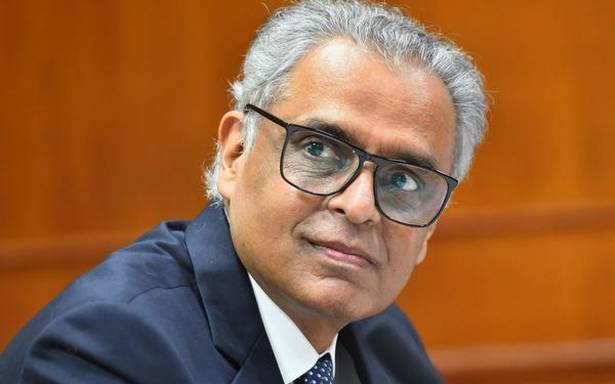Ex-diplomat’s account of elevation of Indian judge elected to ICJ
Exactly five years after the diplomatic coup by getting its judge elected to the ICJ, Indian diplomat Syed Akbaruddin has written a ringside account of the event.
‘India Vs UK’ is a testament to the changing dynamics of multi-lateral governance and international law. Just before the book is to be launched, Syed Akbaruddin, who was India’s Permanent Representative to the UN, shared his views about how India overcame odds and the UK tasted defeat for the first time.
It was the first time a G5 member could not get its judge elected to ICJ. Why did you think you needed to tell this story?
Much of written history sources we are taught in schools are not Indian. These are the accounts of foreign travellers, be it Megasthenes, Fa Hien or Hiuen Tsang. Our knowledge of the past was not written by the participants but by visitors. I want to create a tradition where important issues and stories are told by those who participate.
Such stories build institutions, institutions that help the society in the long run. I wanted to talk about the many young foreign officers who were part of the diplomatic jigsaw puzzle which came together for this triumph. The Foreign Affairs Committee report on the ‘2017 Elections to the International Court of Justice’ reached a conclusion that the ‘influence of UK at the UN is at risk’. International relations are dynamic relative to the country’s position. The UN froze certain statuses dating to 1945 or before the middle of the last century for perpetuity.
India became an original member of the UN even before it became Independent, as the UK assumed India would vote for them.
The permanent members designed the system, which ensured that they would win even if there were elections. One of these institutions was the ICJ.
Judges should be independent. Why is there a requirement about a country and how many votes it can get?
The bylaws work in their favour as you have to win in both the bodies to get elected. This gives a disproportionate influence to the permanent members. You need eight votes to win in SC. The five members are guaranteed of five votes because of the you-scratch-my-back-I-scratch-yours policy. It is not an even playing field at all. That’s why for 70 years they have been winning. This has now changed.
How were the voting commitments at General Assembly and Security Council marshalled or managed?
The Arthashastra says, ‘When it is our interests. All is fair’. Every instrument of leverage is used to gain in stature. We had political clout and we put in more effort. When you create history, there will be a fallout. Next time we contest elections to a world body there will be doubts among the participants as to whether they want to take on India.
Did you manage to sleep during those crucial days?
Indian diplomacy doesn’t sleep. Those were very restless days. It was a 24-hour effort. We had to deal with Pacific Time, feedback at New York time and also keep the Headquarters (New Delhi) in the loop. Technological platforms enabled quick decision making over wide cross section of decision makers. Technology now available has provided secrecy and quick exchange of information.
We would not have been able to move the issue this quickly 20 years earlier.
(The interview has been edited for reasons of space)
Source: Read Full Article

